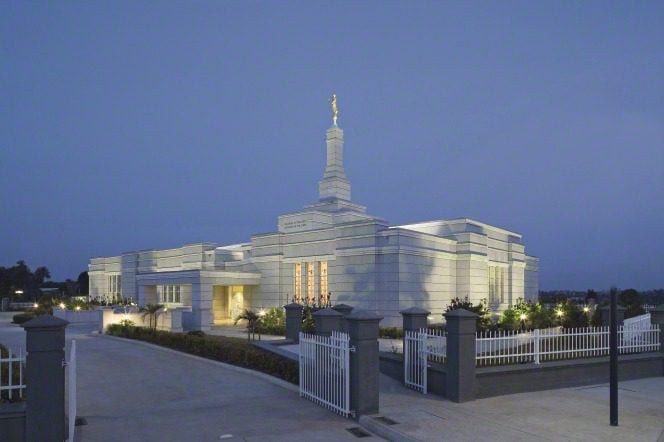
I hope that I’ve made it clear enough that I found the pre-1978 priesthood ban baffling and, to say the least of it, awkward, and that I was absolutely delighted when it was rescinded. (I’ve had a few critics claim that I’m lying about this, just as I lie about almost everything else. There seems no point in insisting that I’m telling the truth; once they’ve decided that I’m an inveterate liar, they’re not likely to accept any claim that I make. Oh well.)
That said, though, I tend to resist confident assertions that the priesthood policy was, simply, the product of racism, that it was an evil mistake, and that the Church should therefore apologize for it. I have no theory of its origin to offer, no theological justification to provide for it, no apologetic to make on its behalf. I simply point to the fact that at least some Church leaders had hoped to rescind it earlier but felt themselves prevented (by the Lord himself) from doing so.
Now, obviously, such an argument will carry little if any weight with those who believe that the Church of Jesus Christ of Latter-day Saints is led by ordinary mortals (or, even, by less than ordinary mortals) who have no access to the mind of God. But for me, since I believe that there is a God and that he stands in a special, revealing relationship with the prophets and apostles at the helm of the Church, it does seem important.
Here is a specific illustration of what I have in mind, drawn from Gregory A. Prince and Wm. Robert Wright, David O. McKay and the Rise of Modern Mormonism (Salt Lake City: University of Utah Press, 2005), 103-104, 183:
It seems that President Hugh B. Brown, the first First Counselor in the First Presidency of the Church of whom I was aware and a man for whom I felt and still feel considerable veneration, really hoped to see the priesthood exclusion policy overturned. Therefore, he attempted to persuade President David O. McKay to make that change.
Reportedly, President McKay told some people that he had prayed about the matter and that the answer was “Not yet.” In fact, according to Richard Jackson, he said that he had prayed repeatedly about the question and that he was told by the Lord to not bring the subject up again, that the change would come, but not during his administration. He even seems to have felt himself somewhat rebuked:
“I’ve inquired of the Lord repeatedly. The last time I did it was late last night. I was told, with no discussion, not to bring the subject up with the Lord again; that the time will come, but it will not be my time, and to leave the subject alone.”
(Thanks to Spencer Hall and Mike Tannehill for supplying the source and the quotation. I’ve been wanting to post this for several days now, but am far away from my library and could not find what I needed online.)
If accurately reported and true, these accounts strongly suggest that, for his own inscrutable reasons, the Lord himself permitted the ban to continue until June 1978. That would make the policy seem to be something more than merely the lamentable product of regrettable nineteenth-century racism.
The opening sentence of Gregory A. Prince, “David O. McKay and Blacks: Building the Foundation for the 1978 Revelation,” Dialogue: A Journal of Mormon Thought 35/1 (June 2010): 145, which quotes a General Authority who served under President McKay, is significant here: “If there was ever a person, in terms of social justice in our society, for fairness, it would have been David O. McKay. Had it been up to him, alone, he would have given the Black the priesthood that quick!”
But President McKay — like President Spencer W. Kimball after him — plainly didn’t believe that a resolution of the matter was simply “up to him.” Both President McKay and President Kimball believed that race-restricted access to priesthood ordination was an issue that required revelation. And both — both — believed themselves to have received such revelation.
***
Addendum:
A reader has challenged a comment that I made, to the effect that religiosity and involvement in religious communities are correlated, on the whole, with lower rates of depression. In response, I offer links to three short columns that I’ve published, which will, in their turn, lead him and others who may be interested to further reading:
“Is religious faith a mental illness?”
“Is religion good for your health?”
“Mental health and the Latter-day Saints”
Posted from Richmond, Virginia











